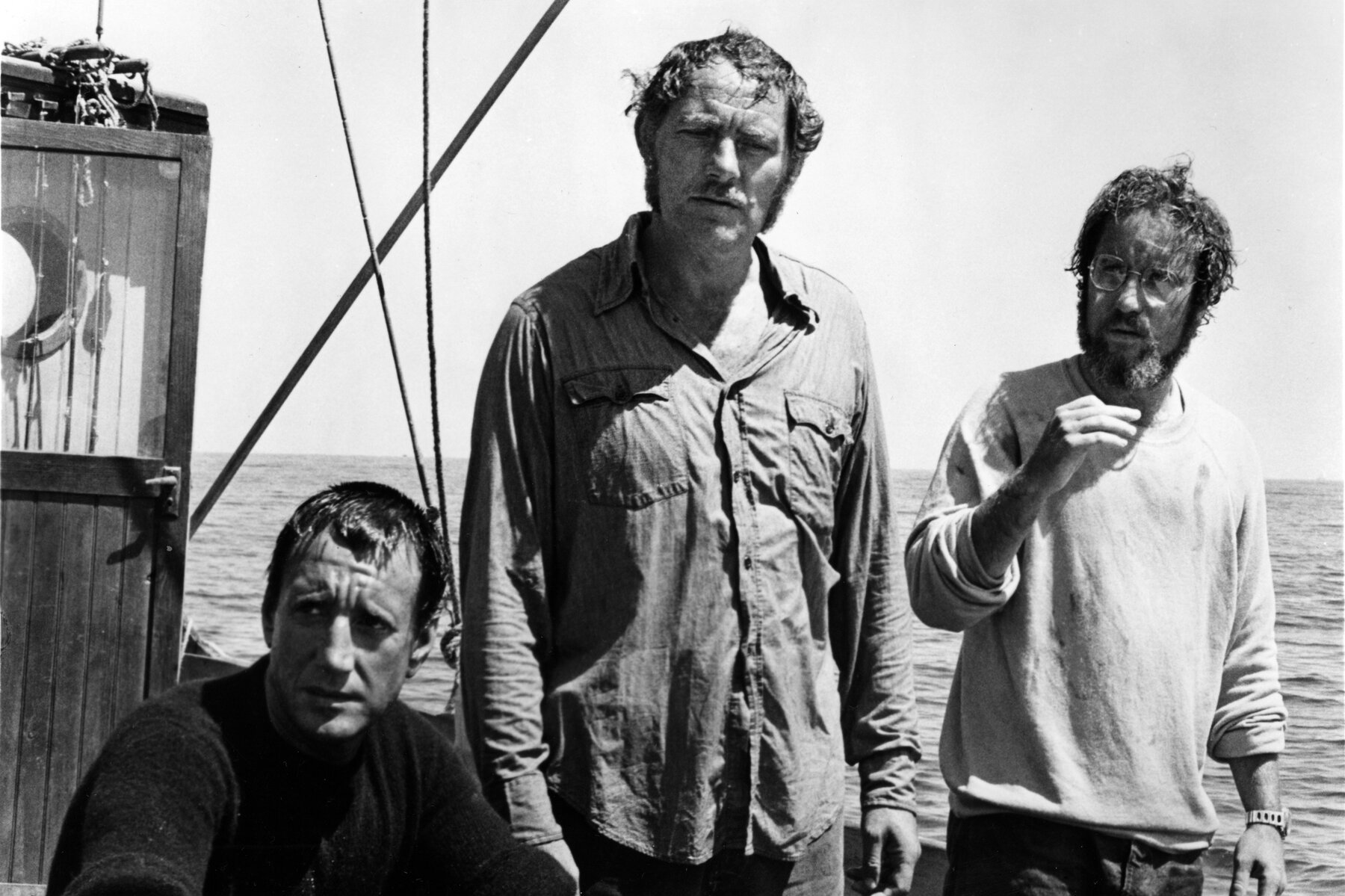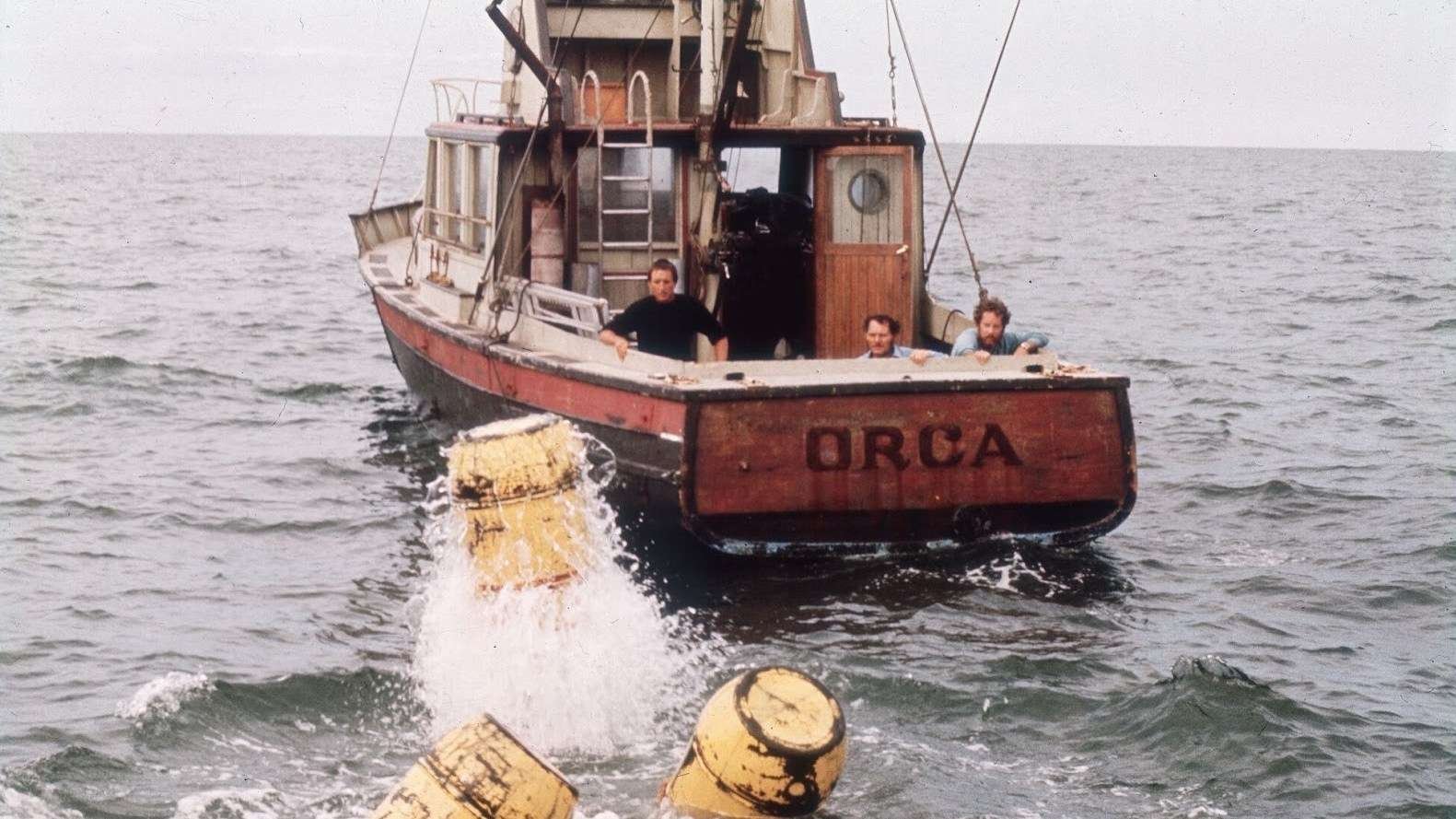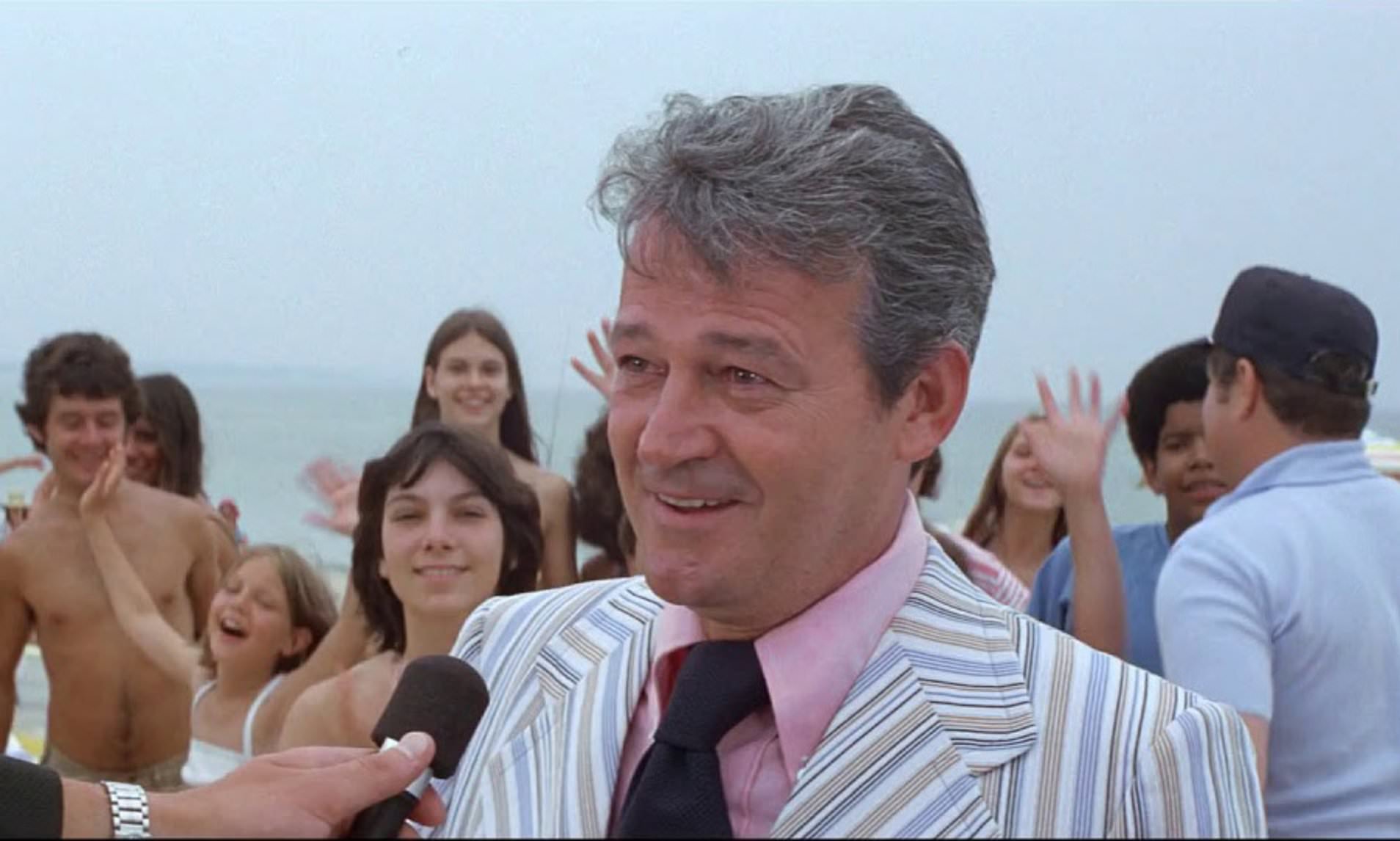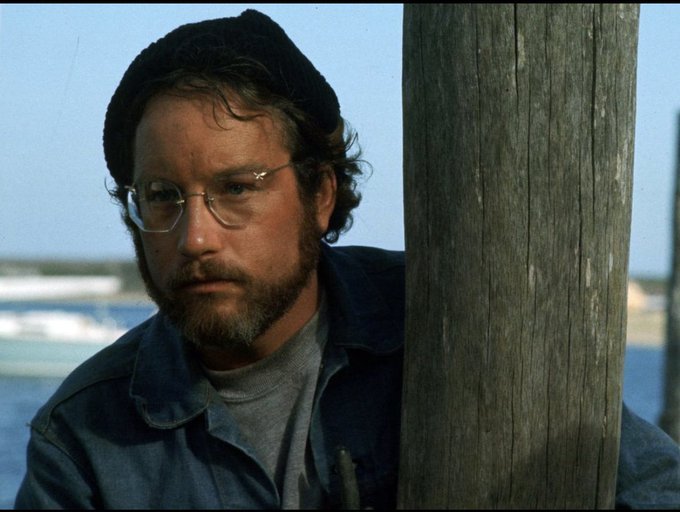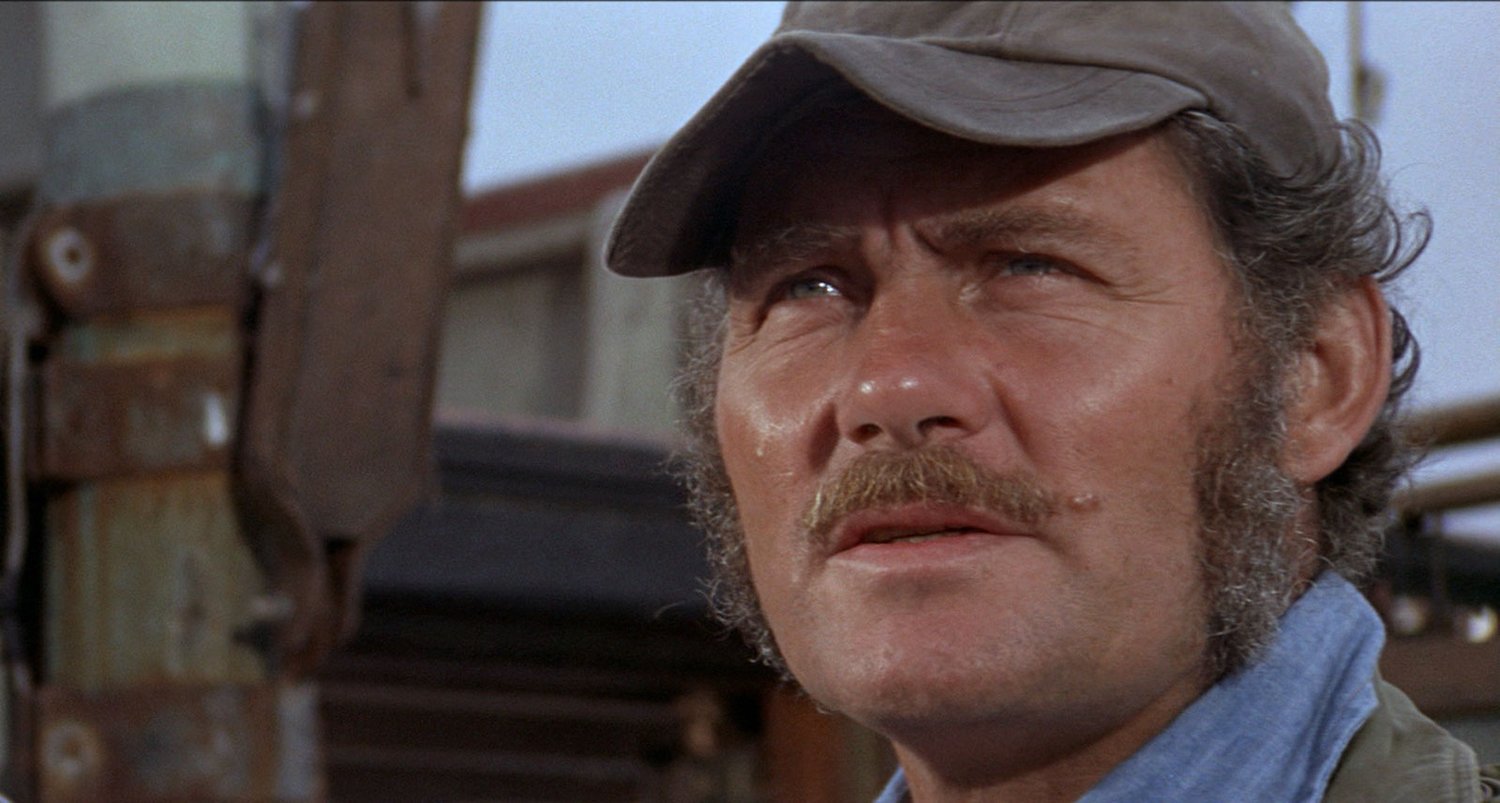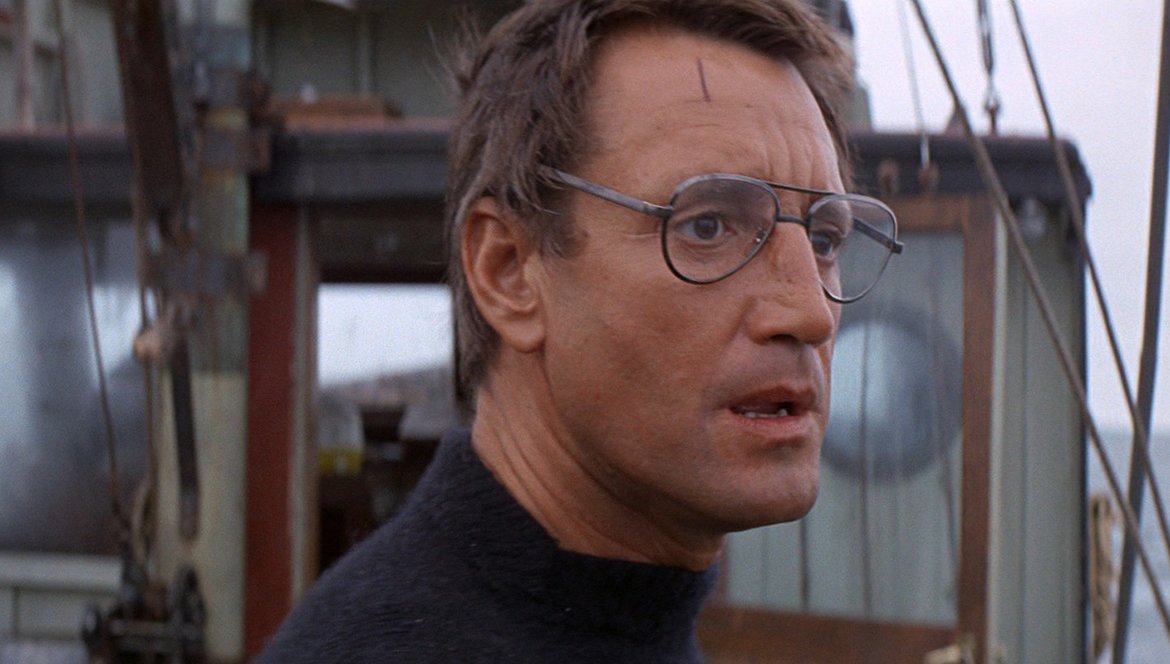The 10 most important characters in JAWS (ranked)
There is so much to admire about Steven Spielberg’s movie adaptation of JAWS. The stripping down of the story; the technical execution; the sheer ambition and vision are all to be marvelled. However, like all classics the characters are who we come back for. Whether it’s islanders, shady politicians, wealthy college boys or unhinged hunters, JAWS spoils us with the richness of it’s inhabitants. Its far more than three men in a boat.
Here, I attempt to rank who (and what) I consider to be the most important characters in JAWS based not just on who they are (or appear to be) but by what they do and the impact their actions have on the story and other characters.
Let me know your thoughts in the comments!
10. Ben Gardner
Like Quint, Ben Gardner is an arrogant, veteran fisherman plying his trade in with the waters off Amity Island. Craig Kingsbury, the Martha’s Vineyard resident who played him, was part inspiration for Robert Shaw’s portrayal of Quint, even using some of Craig’s lines in the movie (“Not like going down the pond chasin' bluegills and tommycods”).
Ben Gardner is brash, cocksure of himself and totally confident yet gets killed (we assume) by the shark. He is not only Quint’s competitor but also his mirror image in many ways and makes the top 10 as they could have been each other’s salvation.
Or, perhaps it was Quint who killed Ben Gardner?
9. Deputy Hendricks
It would be unfair to look back at Deputy Hendricks as the light / comedy relief of JAWS. It is a fantastic comedic / childlike performance from Jeffrey Kramer (check out our interview with Mr Kramer here), however Hendricks’ role in JAWS is far more important.
He and Chief Brody are the only police officers on the island (extra summer deputies, hello?) and because of his naivety and Brody’s lack of faith in his abilities ('Let Polly do the printing!‘). This forces Martin to take sole ownership of Amity Police Dept’s involvement in the shark problem - even going out on the Orca, rather than send Hendricks - something we know he would have much preferred to do, given his fear of the water.
And let us not forget that it is Hendricks who finds the body of Chrissie Watkins, which also just so happened to be the very first scene shot in JAWS.
8. Ellen Brody
“Behind every good man, there is a woman.” And boy does Chief Brody need Ellen. Played with tenderness and strength by a perfectly cast Lorraine Gary, Ellen is Martin’s rock. She clearly understands what is required to be a police officer’s wife but also has her own demons.
She is new to the island and we get a feeling she wants her family to be settled and accepted - she asks Mrs Taft when she will “…get to be an islander…”. Taft replies “Never.” By JAWS 2, Ellen has really made something of herself and is a very influential person, directly involved in the island’s affairs. She’s fought to be accepted on her terms.
But in JAWS, she’s very much Martin’s safe place; a retreat he can rely on to give him words of encouragement, pack his extra pair of glasses in his black socks and allow him to numb the pain with drink. She is the glue holding things together while she, Martin and their sons find their footing in a new place.
7. Mrs Kintner
Even though she is a fleeting presence in JAWS, Mrs Kintner’s actions set off a devastating chain of events. By putting up a bounty for the killing of the shark that took her son, Alex, she puts pay to the Mayor’s hopes of keeping things quiet.
Then, by slapping Chief Brody and outing him as complicit in the cover-up in full view of many of the towns people, she becomes the embodiment of the undeniable truth. It’s at this moment Chief Brody realises he hasn’t just failed as a trusted authority figure, he has also failed as something even more important…. a parent.
6. The Orca
Like the Overlook Hotel in Stanley Kubrick’s ‘The Shining’, the Orca in JAWS becomes a character of its own. We spend almost half the movie on board the Orca - we hear it’s creaks, we see its rust and patchy paint job. By the end of the movie, we know every inch of her.
The Orca could not be anyone else’s boat but Quint’s. It perfectly reflects his state of mind and inability to let go of the past and embrace the new ways. Even the name ‘Orca’ is an arrogant choice (Orcas are the Great White shark’s only natural predator). It’s not often that vehicles find their way in to character lists however, by the end of JAWS, who isn’t a little sad to see Quint’s ricketty old vessel fall apart and eventually sink?
Although, it was even sadder to discover the true life ending to the boat from JAWS, and ending that Steven Spielberg was shocked about.
5. Mayor Vaughn
Larry ‘Beaches Open’ Vaughn… what a slime ball. Or is he? Like he says at the hospital, every choice he made was “acting in the town’s best interests…” - and that’s his priority so surely he’s the greatest mayor there’s ever been. This is why Larry Vaughn is one of the best characters in cinema. He’s beyond ambigous. Who’s side is he actually on?
Not enough can be said about Murray Hamilton’s portrayal of a man who’s damned whatever he does. Next time you watch JAWS, watch Vaughn through the lens of the book’s sub-plot of shady deals with the mafia. It adds a whole new dimension to a character we have aleady known for almost 50 years.
Here’s why Mayor Vaughn made all the right moves in JAWS.
4. Hooper
In Peter Benchley’s book, wealthy ichthyologist Matt Hooper is a wife-shagging scumbag. In Steven Spielberg’s movie, he is the reason we fell in love with sharks and science. We know which incarnation we prefer.
What could have been a thankless role for Richard Dreyfuss, Hooper is played to more than hold his own, when standing by Cheif Brody’s side going head to head against Mayor Vaughn. But it’s his relationship with Quint that really defines Hooper. Quint and Hooper are two sides of the same coin. They represent everything each hates about the other’s view of sharks. However, they eventually come to respect each other and Hooper is genuinely affected when Brody confirms Quint didn’t make it.
Matt Hooper and the heroes journey
3. Quint
What a powerhouse of a performance. How Robert Shaw’s portrayal of Quint was overlooked by the Academy for even a nomination is scandalous. An intolerant, intelligent working man hiding, Shaw ensures Quint is a dominating presence in every scene he appears.
On land, Quint is a cantankerous loner, who isn’t afraid to use his leverage over the town when opportunity knocks. Once out on the open ocean, he is king. His fighting chair a throne. The ocean his kingdom - or so he thinks. Hiding a tragic secret that explains his hatred of sharks, the Quint we thought we all knew slowly reveals himself as the character with the deepest scars and heaviest burden.
Choosing a lonesome existence has allowed him to continue to live in the past and not embrace the present and let go of his pain. This has poisoned him and (perhaps) has pre-determined his fate. Quint has a profound impact on both Brody and Hooper. They both come to admire Quint for being of a generation and world where men didn’t openly share their thoughts, feelings and stories - especially about war (my own grandad being a prime example).
Could Hooper and Brody have coped with Quint’s trauma? Maybe. Maybe not. But having seen how isolating himself perhaps robbed Quint of a life filled with love and famly, they truly understand the importance of allowing yourself to be vulnerable and being able to learn from and let go of the past.
2. Brody
Amity Island’s new Chief of Police Martin Brody is perhaps ‘the most important character in 70s cinema’. He we first see Martin as husband, with all the usual domestic demands - feeding dogs, fixing swings. He is happy and who woouldn’t be? He’s coasting. A cushy job - probably his last role before retirement - a beautful house in a beautful place with a wonderful wife and two young sons who (still) see him as a hero. He’s living the American Dream.
Then he gets a phone call about a missing girl and everything changes. For the next two hours (in movie terms) every aspect of Brody’s identity and understanding of his world is tested, broken and reborn. At the start of JAWS, he is a nice guy. And who respects the nice guy?
No-one. Not even his kids (who play on swings they’ve told not to). Amity Island’s ‘trusted’ authorities want to cover-up the shark attack in an effort to save the town’s ‘summer dollars’. Brody goes along with it - as long as he isn’t hung out to dry (“You’ll stand by me?”).
He protests when the Mayor declares the beaches will only be closed for 24 hours but doesn’t go far enough to ensure public safety - which results in the death of Alex Kintner, a boy similar in age to his eldest son. While he is a man of morals, he lacks the courage of his integrity and belief in his own authority. He also has a drinking problem. It could be seen that Brody relies on dutch-courage to make tough decisions (Tiger shark autopsy) and hide from his failures (when fired in JAWS 2).
Reality literally hits home when Mrs Kintner publicly slaps him and his son Michael has a close call with the shark in pond. Brody is starting to sober up to the truth of the situation and now he must see things through to the end. This is no longer about killing the shark, this about redeeming his professional reputation, regaining the respect of his family and saving his soul.
By going out on the Orca (rather than perhaps sending Hendricks or trusting Quint to actually do the job), Brody is pushing himself to the limit and relying on Quint, Hooper and the Orca to bring him home safe. By the end, all three have been removed and it’s just him, the shark, Hooper’s air tank and Quint’s rifle that will determine the outcome. After killing the shark, Brody seems to experience complete euphoria then total relief. The sober man having faced reality now believes in himself once again.
Brody returns to Amity with a new found self respect and unfiltered view of the world he lives in. Everything he thought was keeping him safe was in fact holding him back. By seeing it through and killing the shark he’s freed from the shackles of his old self and has a new perspective on his obligations - job, husband and father. Even after nearly 50 years, we can still learn a lot from Martin Brody.
1. The Shark
“It can't be bargained with. It can't be reasoned with. It doesn't feel pity, or remorse, or fear. And it absolutely will not stop... ever, until you are dead!” - Kyle Reece, The Terminator (1984)
Putting the shark at the top of this list may seem like an odd choice but for me, it’s the only choice. It has no traditional character arc or development, yet it’s actions have the most catastrophic impact on not just it’s ‘victims’, but also the lead characters and a wider community - all of which it is totally unaware of and has no concern with.
Unlike it’s human counterparts, nothing the shark does is motivated by personal agenda or political ambitions. It has no family to make proud nor reputation to redeem or career to make. It’s just trying to survive; and given its size, it’s become very skilled at this.
After killing Chrissie, the shark could have chosen to leave the waters of Amity Island to look for a better feeding ground but it stayed. Territorialty or just good instincts? (This decision alone begs the question, if Chrissie hadn’t gone swimming, would the shark have stayed? That’s for another blog to discuss).
Then the shark kills Pipit the black labrador dog and Alex Kintner during the day in full public view of the town‘s people and most important Chief Brody. This is a daring thing for the shark to do, like pulling off a heist in broad daylight. But again the shark doesn’t have this human context. It doesn’t care what time of day it is or how many people are watching.
As things escalate with the deaths of Ben Gardner and estuarty rower, the shark problem is out of control and something must be done. That’s when the shark is baited and focuses it’s attention on Quint, Hooper, Brody and the Orca. The chumming acts to draw the shark away from the island but also acts as very dangerous seeds to sow. The shark happily obliges and faces it’s new challenge head-on, the opposite of Brody who’s been doing all he can to avoid the reality of the situation.
Overcoming both Quint and Hooper’s methods of destruction, the shark finally faces down the (percieved) weakest of the trio, Brody who by literally and figuratively looking his demons dead in the eye finds what is needed to kill it, ending our story.
The shark in JAWS challenges so many of our social constructs it gives us reason to pause and look at our immediate community, wider society, political systems, industry and most importantly ourselves in a way that forces us to re-evaluate our relationship not with just the natural world but also our fellow man. The shark in JAWS is the mirror we are reluctant to hold up to ourselves and each other and for me this makes it not just the most important character in the movie but also the purest and most influential non-human entity in cinema.
Words by Ross Williams
If you would like to write for The Daily Jaws, please visit our ‘work with us’ page
For all the latest Jaws, shark and shark movie news, follow The Daily Jaws on Instagram, Twitter and Facebook.


